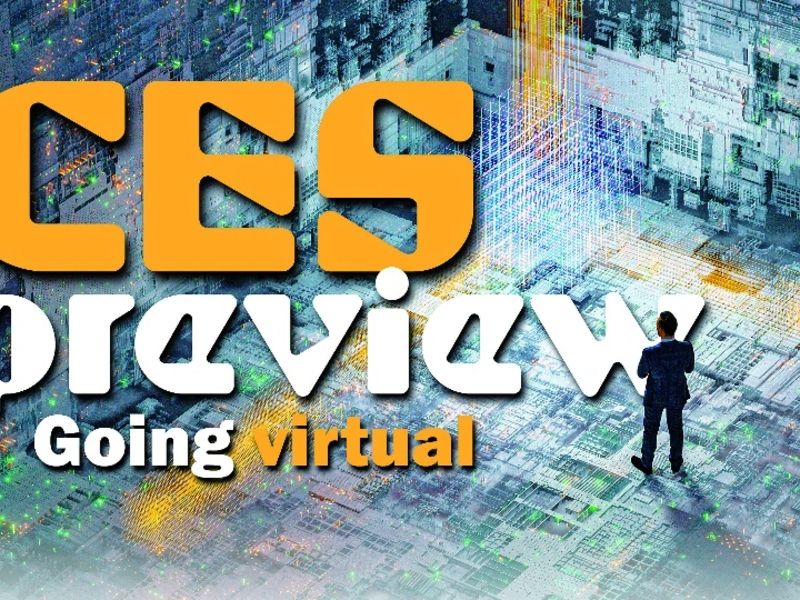
For the past several years, the first week of January has been especially important for automakers, suppliers and new industry entrants.
It’s typically when the Las Vegas Convention Center and the surrounding area are reconfigured to accommodate the test drives, demonstrations and displays that are synonymous with the annual CES.
Hotels up and down the Las Vegas Strip are booked for that week months in advance. Hundreds of thousands of industry executives, leaders, enthusiasts and media from around the globe swarm to experience the latest developments in automotive technology, alongside other consumer electronics, that will influence the industry for years to come. Showgoers have seen everything from General Motors’ OnStar to Toyota’s Woven City.
This year, CES has been stripped of those experiences because of the ongoing coronavirus crisis. Instead, the automakers, suppliers and startups that have often revealed innovations in electrification and autonomy at the nation’s signature technology show will demonstrate their latest technologies virtually.
“What’s happened in this one year since CES 2020 is so dramatic and so changing in so many ways,” said Gary Shapiro, president of the Consumer Technology Association, which owns and hosts the show.
But “the auto industry still needs information,” he said. “They need relationships and context. They need serendipity. They need to understand whether they can trust a vendor or not.
“Events like ours give an opportunity for people to come together.”
Because of this, Shapiro is bullish about the show and said it provides a necessary outlet, even digitally.
“It’s a cross-vertical event, and the auto industry especially has benefited from the fact that innovations are coming from outside of the traditional verticals,” he said. “In other words, if you are in just the auto category, and you’re a major company, you’re looking for innovation everywhere. You’re looking outside your vertical. You’re looking to partner with all sorts of different technology companies.
“Especially in a year, frankly, where a lot of the auto shows have just gone away or been impacted in different ways, CES has provided an opportunity to do that.”
The Consumer Technology Association revealed on July 28 its decision to go virtual with the show. That followed several changes to the industry’s largest and most influential auto shows.
A few automakers and suppliers that have previously shown products at CES are not exhibiting this year.
Notably, as of last week, Ford, Honda, Hyundai, Rivian and Toyota had not returned as exhibitors for the digital show, according to the association.
French electronics and seating supplier Faurecia, which outlined its partnership with Microsoft at the show in 2020, is not exhibiting this year, said a spokesman.
Another French supplier, Valeo, which demonstrated its eDeliver4U autonomous, electric delivery bot last year, also won’t exhibit.
Shapiro said exhibitor participation ebbs and flows even in normal years, but the digital event presented some challenges.
“Sometimes the workflow of the company is such they couldn’t pivot to even deal with the digital thing because it’s a totally different skill set,” Shapiro said. “Instead of having a physical exhibit presence, you have to do something totally different and imagine what you’re doing.”
Microsoft Corp. is producing the digital show, and Shapiro, a steady presence on the CES stage, will run things not from Las Vegas, but from Microsoft’s headquarters in Redmond, Wash.
“Our philosophy was that we were not going to do everything,” Shapiro said. “We’re going to do a few things very well. And that’s what our goal is. We want a good search engine. We want connectivity. We want people to have a personalized experience. We want to do things absolutely right in a way that makes sense and has everyone that’s investing have a productive, valuable experience.”
Not only has the show been transformed as a result of the pandemic, the trends in mobility and transportation that would typically be showcased there have shifted. One example is waning consumer interest in shared rides.
“There’s a lot of impacts on the transportation world that come out of COVID that are still being felt,” he said. “But I think in the long run, they’ll be positive.”
As for the future of CES, it is expected to return to Las Vegas in 2022 as a hybrid show, combining aspects of in-person and digital events.
“We need to walk around and see and feel,” Shapiro said. “We need that discovery that you can’t get fully on a computer.
“You need the body language, the signals. You need the hugs and handshakes,” he added. “You need those relationships, the look in the eye. You need the smell of that new-car experience.
“So while business has gone on and technology’s been a lifesaver in this time period, and I’m very proud of what the tech industry has done, we need those events.”
Because of the ongoing coronavirus crisis, automakers, suppliers and startups that have often revealed innovations in electrification and autonomy at the nation’s signature technology show will demonstrate their latest technologies virtually.